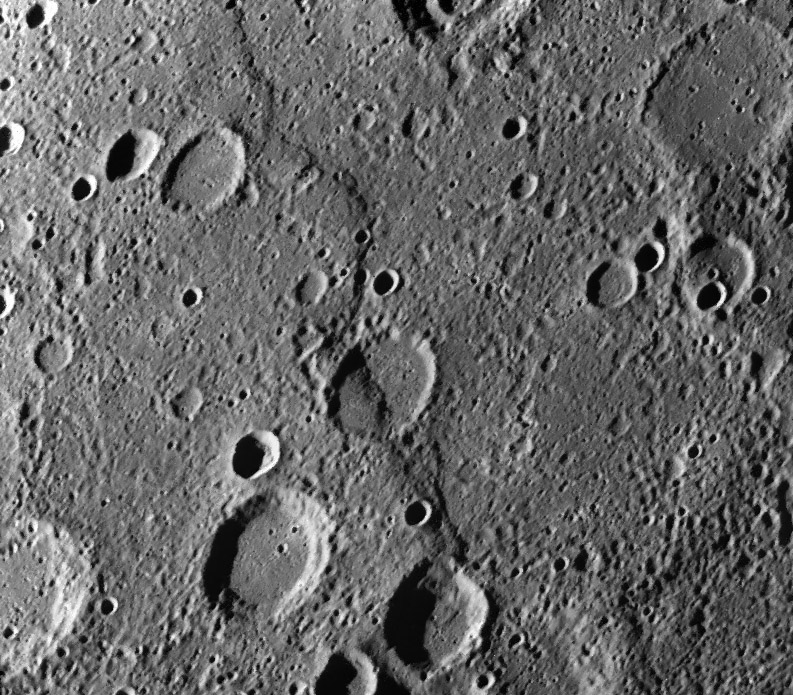![]()
| Home Michael Ammar Solar System Solar System Summary Sun Sun's Statistics Mercury Mercury's Statistics Venus Venus' Statistics Earth Earth's Statistics Mars Mars' Statistics Asteroid Field Asteroid Field's Statistics Jupiter Jupiter's Statistics Saturn Saturn's Statistics Uranus Uranus' Statistics Neptun Neptun's Statistics Pluto Pluto's Statistics Picture Library |
 |
| Large Faults on Mercury This Mariner 10 image shows Santa Maria Rupes, the sinuous dark feature running through the crater at the center of this image. Many such features were discovered in the Mariner images of Mercury and are interpreted to be enormous thrust faults where part of the mercurian crust was pushed slightly over an adjacent part by compressional forces. The abundance and length of the thrust faults indicate that the radius of Mercury decreased by 1-2 kilometers (.6 - 1.2 miles) after the solidification and impact cratering of the surface. This volume change probably was due to the cooling of the planet, following the formation of a metallic core three-fourths the size of the planet. North is towards the top and is 200 kilometers (120 miles) across. (� Copyright 1998 by Calvin J. Hamilton; FDS 27448) |
Send mail to [email protected] with questions or comments
about this web site.
Copyright � 1998 Michael Ammar.